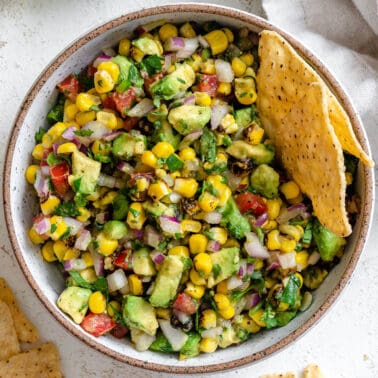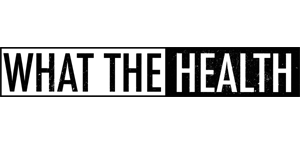As an Amazon Associate I earn from qualifying purchases.
Dr. Matthew Nagra is a Naturopathic Doctor in Vancouver, BC, and is a passionate advocate for plant-based nutrition. He is a public speaker, author, graduate of the T. Colin Campbell Center for Nutrition Studies Plant-Based Nutrition program, and volunteer for the non-profit Nutritionfacts.org.
Soy has become one of the most polarizing nutrition topics in recent decades, which is astonishing when considering how one-sided the research actually is regarding soy and human health. In this article, I plan to dispel some of the most common myths and set the record straight about soy.
Table of Contents
Myth 1: Soy is estrogenic
Soy contains compounds known as phytoestrogens, which have a similar structure to the estrogens we produce within our own bodies. Because of this, many people believe soy to be estrogenic, and therefore feminizing in men or potentially breast cancer-promoting. It is important to note that these phytoestrogens are approximately 1000 times weaker than our own estrogens.(1) On top of that, they actually preferentially bind to different receptors within our body, which can result in different impacts on our health than true estrogen since the preferred receptors are concentrated in different areas, such as bone.(2) Since soy phytoestrogens are so much weaker than true estrogen if our estrogen levels are low, they can help increase our body’s estrogen response, but if we have too much estrogen, the weaker phytoestrogens can actually crowd out the more potent estrogens and dampen the estrogen response. In this way, soy can help maintain a healthy balance, which may be why soy phytoestrogens can reduce hot flashes.(3)
On the topic of hormone balance, numerous large-scale studies have found that soy does not affect testosterone or estrogen levels in men or women, nor does soy promote breast growth in men.(4-6) In fact, there is no evidence that soy has any adverse hormonal effects in the amounts that are traditionally consumed.
Lastly, there also doesn’t appear to be a negative effect on hormones in growing children,7 which is why the American Academy of Pediatrics suggests soy formula as a suitable option for infants who cannot be breastfed,(8-9) and soy milk as a suitable option after 12 months of age.(10)
Dairy, on the other hand, may actually be a consistent source of estrogen since cows are often milked throughout pregnancy when their estrogen levels are elevated.(11)
Myth 2: Soy causes breast cancer
This is a very common fear amongst women and even some medical professionals, which is simply not grounded in the available science. True estrogens can promote breast cancer, but soy phytoestrogens can decrease the estrogen response as stated above.(1-2) This action actually seems to protect against breast cancer! Research on soy consumption in Asia found that those who consume just ½ cup of tofu per day have a 30% lower risk of breast cancer compared to those who avoid soy.(12) Furthermore, women who are genetically predisposed to getting breast cancer may also reduce their risk by including soy(13) and those who have previously battled breast cancer may have a 21% higher survival rate over the course of 9 years if they consume more soy!(14)
Beyond breast cancer, soy may offer protection against other cancers too. Regular soy consumption may protect against endometrial cancer,(15) and a 2018 meta-analysis that compiled all the data from previous studies found that higher soy food consumption resulted in a 30% reduction in prostate cancer risk!(16) To contrast with dairy again, milk consumption may increase prostate cancer risk.(17)
Myth 3: Soy is destroying the environment
There is actually truth to this statement, but it’s probably not in the way you think. It is true that soy production is a major driver of deforestation worldwide and may be responsible for 29% of Brazil’s greenhouse gas emissions;(18) however, this is not because vegans are running rampant and eating all the tofu! Conservatively speaking, approximately 70% of all the soy in the world is fed to livestock animals as a cheap and easy way to promote their growth in factory farms before eventually being slaughtered and consumed as meat.(19) Only approximately 6% of all the soy grown is used directly for human consumption, most of which occur in Asia. The rest is predominantly used to make soybean oil. It’s incredibly ironic when we understand that most of the people who claim that soy is destroying the planet are likely those contributing to this issue by purchasing and eating animals. If we want to reduce the amount of damage being done by soy production, we need to stop raising animals for food first.
Myth 4: Soy is GMO
Like myth #3, there is some truth to this statement. The vast majority of the soy produced is genetically modified and sprayed with the glyphosate-containing pesticide, Roundup; however, the vast majority of GMO soy is grown specifically for livestock feed. Almost all of the soy produced for humans is not grown in that fashion (20) and if you want to ensure you avoid the GMO products, choose organic or products with a ‘non-GMO’ label. It’s really just that simple.
Myth 5: Tofu is processed and lacks nutrition
I will grant the claim that tofu is technically processed; however, that does not mean it is not a fantastic source of nutrition. Using the nutrient tracking program, Cronometer, we find that ½ a block of extra firm tofu can provide over 22 grams of protein and over half of your daily iron and calcium needs. Tofu, however, does have a fairly low fiber content of just 1 gram compared to 5 grams in ½ a cup of whole, unprocessed soybeans, which is one of the downfalls of the tofu production process. Tofu can be an excellent and tasty way to add protein and minerals to any meal, and if you want the extra fiber, perhaps tempeh or edamame would be more suitable options; however, fiber is rarely a concern when eating a predominantly or exclusively plant-based diet.
I hope this article has helped squash some of the common misconceptions around soy products and has encouraged you to find new ways to add this healthy food to your diet.
References:
1.- Mostrom, M. & Evans, TJ. Phytoestrogens. Reproductive and Developmental Toxicology. 2011.
2.- McCarty, MF. Isoflavones made simple – Genistein’s agonist activity for the beta-type estrogen receptor mediates their health benefits. Medical Hypothesis. 2006;66:1093-1114.
3.- Taku, K. et al. Extracted or synthesized soybean isoflavones reduce the menopausal hot flash frequency and severity: systematic review and meta-analysis of randomized controlled trials. Menopause. 2012;19(7):776-790.
4.- Messina, M. Soybean isoflavone exposure does not have feminizing effects on men: a critical examination of the clinical evidence. Fertil Steril. 2010;93(7):2095-2104
5.- Hamilton-Reeves, JM et al. Clinical studies show no effects of soy protein or isoflavones on reproductive hormones in men: results of a meta-analysis. Fertil Steril. 2010;94(3):997-1007.
6.- Hooper, L et al. Effects of soy protein and isoflavones on circulating hormone concentrations in pre- and post-menopausal women: a systematic review and meta-analysis. Human Reproduction Update. 2009;15(4):423-440
7.- Messina, M. et al. Health impact of childhood and adolescent soy consumption. Nutrition Reviews. 2017;0(0):1-16.
8.- Bhatia, J. et al. Use of Soy Protein-Based Formulas in Infant Feeding. Pediatrics. 2008;121(5):1062-1068.
9.- Where We Stand: Soy Formulas. HealthyChildren.org.
10.- Healthy Beverage Consumption in Early Childhood: Recommendations from Key National Health and Nutrition Organizations. 2019.
11.- Maruyama, K et al. Exposure to exogenous estrogen through intake of commercial milk produced from pregnant cows. Pediatrics International. 2012;52:33-38.
12.- Wu, AH et al. Epidemiology of soy exposure and breast cancer risk. Br J Cancer. 2008;98(1):9-14.
13.- Kwang-Pil, K et al. Dietary intake and breast cancer among carriers and noncarriers of BRCA mutations in the Korean Hereditary Breast Cancer Study. Am J Clin Nutr. 2013;98:1493-1501.
14.- Zhang, FF et al. Dietary isoflavone intake and all-cause mortality in breast cancer survivors: The Breast Cancer Family Registry. Cancer. 2017:2070-2079.
15.- Ollberding, NJ et al. Legume, soy, tofu, and isoflavone intake and endometrial cancer risk in postmenopausal women in the multiethnic cohort study. J Natl Cancer Inst. 2012;104(1):67-76.
16.- Applegate, C.C. et al. Soy Consumption and the Risk of Prostate Cancer: An Updated Systematic Review and Meta-Analysis. Nutrients. 2017;10:40.
17.- Aune, D et al. Dairy products, calcium, and prostate cancer risk: a systematic review and meta-analysis of cohort studies. Am J Clin Nutr. 2015;101(1):87-117.
18.- Karstensen, J. et al. Attribution of CO2 emissions from Brazilian deforestation to consumers between 1990 and 2010. Environmental Reach Letters. 2013;8(2).
19.- Brack, D. et al. Agricultural Commodity Supply Chains: Trade, Consumption, and Deforestation. Chatham House. 2016:1-80.
20.- Canadian Soybean Industry Research And Innovation Strategy Workshop. Synthesis. 2016.











